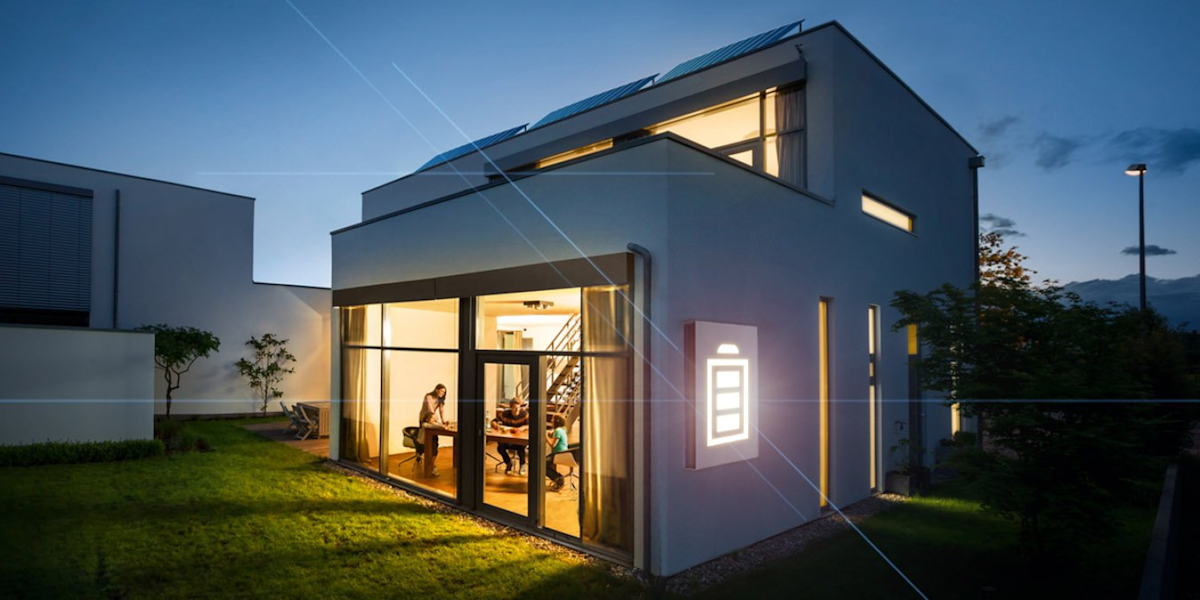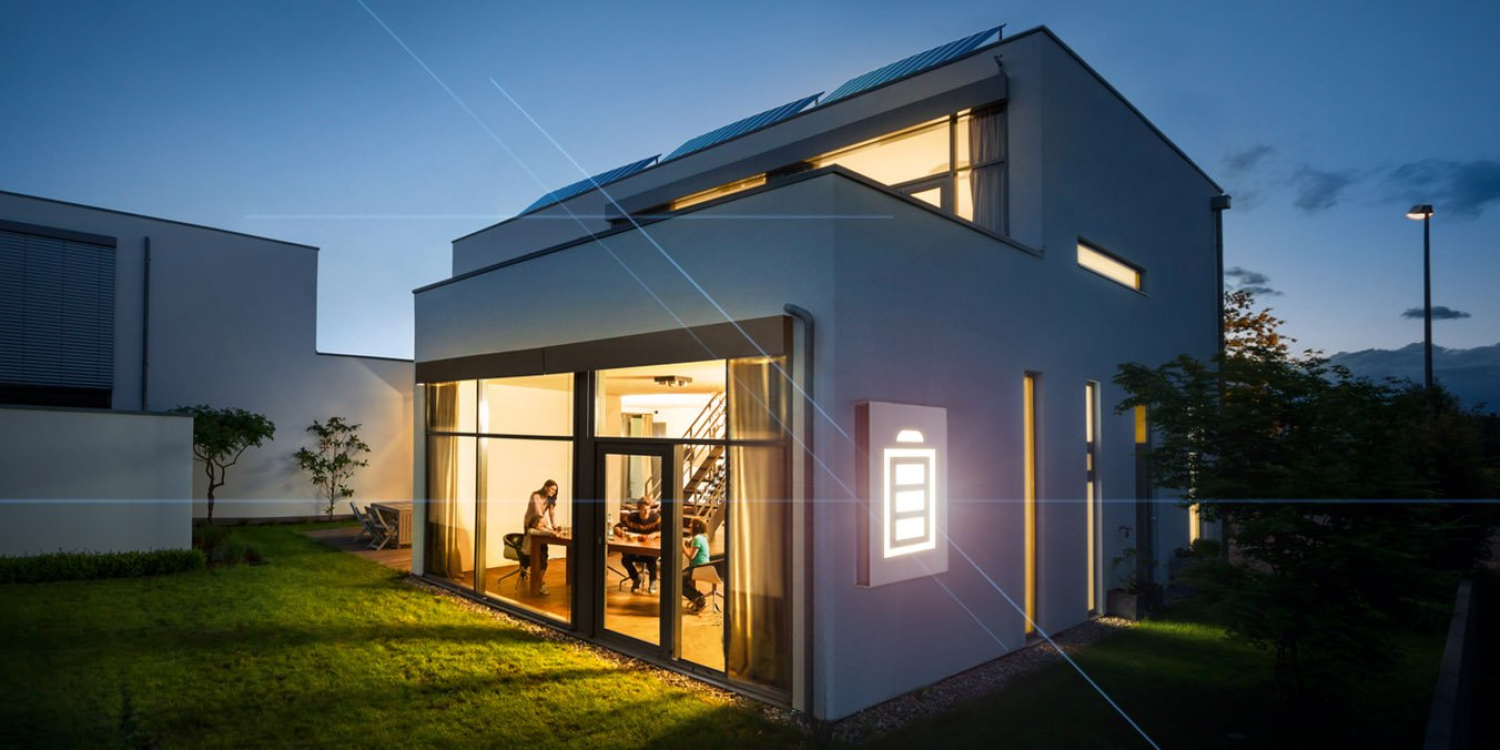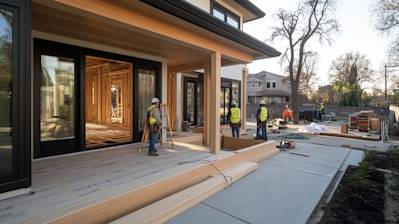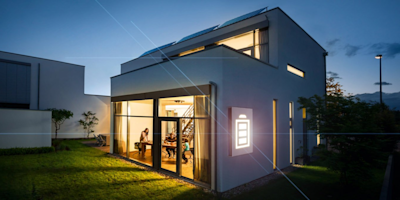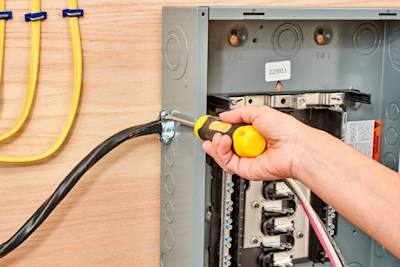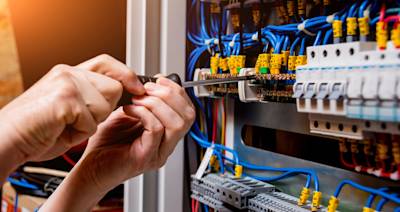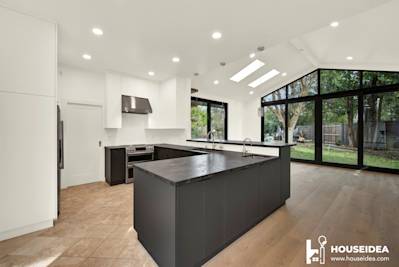Residential energy storage systems have emerged as a hot topic on the modern energy landscape. There has been a notable surge in their popularity due to increased sustainability concerns, rising energy costs, and the advancement in technology. In simple terms, residential energy storage refers to systems that store electricity within a home for use at a later time. They pair incredibly well with renewable energy sources – primarily solar panels– and are a core component of a clean, decentralized power grid.
Types of Residential Energy Storage Systems.
There are several different kinds of residential energy storage options available for homeowners. Let's delve into some of the most common types.
Battery Energy Storage Systems (BESS)
Battery energy storage systems are predominantly the most popular form of residential energy storage. They store electricity in rechargeable battery packs, which can be used when your energy demands are higher than the energy supplied by your solar panels — or during a power grid outage.
Thermal Storage
Thermal storage involves the storage of energy in the form of heated or cooled substances, such as water or ice. This stored energy can be used for heating or cooling your home or domestic hot water.
Hydroelectric Storage
Though typically associated with industrial applications, some homes can harness the power of micro-scale pumped hydroelectric storage. This involves storing potential energy in water pumped to an elevation, which can be released to generate electricity on demand.
Key Players in the Residential Energy Storage Market
There are a number of leading manufacturers in the residential energy storage market, including:
- Tesla, with their Powerwall 2.0
- Sonnen, with their ecoLinx energy storage system
- L.G, with their Chem RESU series
- Enphase Energy, offering the Encharge system.
How Residential Energy Storage Works
The operational mechanism of residential energy storage systems stands straightforward and relatively simple. Broadly, these systems follow this process:
-
Generation: The energy generation source, typically solar panels, produce electricity during the day.
-
Storage: The excess electricity produced by the solar panels is stored in the energy storage system.
-
Distribution: When more power is needed than the solar panels are producing (like at night or during peak demand), the stored power is discharged from the storage system to meet the demand.
The Importance of Residential Energy Storage
Having a residential energy storage system confers a multitude of benefits. This includes:
- Independence: One of the biggest appeals of residential energy storage is the prospect of energy independence. By using stored solar energy, homeowners can reduce their reliance on the power grid.
- Reduced Energy Costs: With energy storage, homeowners can avoid drawing energy from the grid during peak demand (when prices are at a peak). Instead, they may pull from their stored energy reserve.
- Backup Power Supply: In case of power outages, an energy storage system can kick in to provide backup power.
Future of Residential Energy Storage
The residential energy storage market is poised for significant growth in the coming years – thanks to the falling costs of batteries and solar energy, along with rising electricity prices. It will play a pivotal role in a global transition to more sustainable energy systems, enabling households to maximize their use of renewable energy while providing a means to stabilize the electric grid. In a rapidly growing field, understanding residential energy storage has never been more important.
Frequently Asked Questions about Residential Energy Storage
What is the purpose of a residential energy storage system?
The purpose of a residential energy storage system is to store surplus energy that is generated, typically from renewable sources, for use at a later time. This system allows homeowners to minimize their reliance on the grid, have a power backup during outages, save on their energy bills, reduce their carbon footprint, and often sell excess power back to the grid.
How does a residential energy storage system work?
A residential energy storage system works by storing the excess energy generated by your renewable energy sources such as solar panels, wind or hydro power. This energy is stored in batteries and can be used at a later time when the renewable sources aren't producing energy, such as during the night or on cloudy days. The most common type of residential energy storage is a lithium-ion battery connected to a solar panel system.
What types of residential energy storage systems are available?
There are several types of residential energy storage systems available. The most common is the lithium-ion battery, renowned for their efficiency, longevity, and charge rate. Other types include lead-acid batteries, which are less expensive but less efficient, and flow batteries, which are great for long-lasting energy storage but are generally larger in size.
How long do residential energy storage systems typically last?
The lifespan of a residential energy storage system can vary depending on the type of battery used, how often the system is used, and the overall system maintenance. However, generally, a good-quality, well-maintained system can last between 10 to 15 years before requiring a battery replacement.
Is it possible to go off-grid with a residential energy storage system?
While going completely off-grid with a residential energy storage system is possible, it is usually not practical for most households due to the significant increase in the necessary size of the system. However, these systems can serve as a valuable backup energy source in the event of power outages and can reduce reliance on the grid significantly.
How much does a typical residential energy storage system cost?
Costs of residential energy storage systems can vary greatly depending on the size, type, and brand of the system. However, on average, homeowners can expect to pay between $5,000 to $7,000, inclusive of parts and installation. Do keep in mind that numerous government incentives and schemes can help offset these costs.
Does a residential energy storage system require maintenance?
Just like any other electronic system, a residential energy storage system does require regular maintenance to ensure it stays effective. Thankfully, most modern systems are equipped with monitoring software that simplifies this task. Depending on the type of system and its location, maintenance could include regular cleaning, component checks, and firmware updates.
Can a residential energy storage system increase the value of my home?
In many cases, adding a residential energy storage system to your home can increase its value. Many buyers see this kind of system as a feature, given its capacity to reduce energy costs and provide backup power during outages. Furthermore, as people continue to prioritize sustainability, properties with renewable energy capabilities can have a competitive advantage in the market.
What is the environmental impact of a residential energy storage system?
A residential energy storage system helps reduce a household's carbon footprint by using energy from renewable sources rather than fossil fuels. Furthermore, by reducing dependence on the main grid (which might still rely on coal or natural gas), these systems indirectly contribute to lesser emissions. This being said, it’s essential to consider the lifecycle of the batteries used in the system, as battery production can have its own environmental considerations.
Pros and Cons of Residential Energy Storage
Pros of Residential Energy Storage
Energy Independence
One of the most significant advantages of residential energy storage systems is that they provide homeowners with increased energy independence. This is especially evident in the following scenarios:
- Power Outages: In the event of a power outage, a residential energy storage system allows households to continue running off stored electricity rather than being completely without power.
- Self-consumption of Solar Energy: Rather than selling surplus solar energy back to the grid, homeowners can store it for use at a later time, gaining more value from their solar energy system.
- Off-grid Living: For those living in remote areas where connecting to the grid may be difficult or costly, residential energy storage can facilitate off-grid living.
Reduced Energy Costs
A well-optimized residential energy storage system can result in considerable cost savings. Here's how:
- Peak Shaving: By using stored energy during peak demand periods when energy prices are high, households can save on their energy bills.
- Increased Solar Payback: Storing surplus solar energy for later use can increase the payback from solar panels, especially in areas without generous feed-in-tariffs.
Environmental Benefits
Residential energy storage systems offer important environmental benefits. These include:
- Lower Carbon Footprint: By maximizing the use of renewable energy and minimizing reliance on fossil-fuel-based grid energy, households can reduce their carbon footprint.
- Support for the Grid: By storing surplus energy and releasing it back to the grid when needed, residential energy storage can help balance grid demand and contribute to a sustainable energy future.
Cons of Residential Energy Storage
High Initial Costs
One of the biggest drawbacks of residential energy storage is the high upfront cost. These costs include:
- Purchasing Cost: The cost of energy storage systems can be substantial, often running into thousands of dollars depending on the size and type of the system.
- Installation Cost: The cost of professionally installing a residential energy storage system can add to the upfront cost.
Complexity
For many homeowners, the complexity of installing and managing a residential energy storage system can be daunting. This complexity includes:
- Technical Knowledge: Understanding the technical aspects of battery storage, including how to size a system correctly, can be challenging for non-experts.
- Maintenance: Regular maintenance is needed to ensure that the energy storage system is operating effectively and safely.
Space Requirements
Residential energy storage units can be quite large and take up significant space. This can be an issue in homes with limited space or those with aesthetic concerns.
Replacement and Disposal
The batteries used in residential energy storage systems have a finite lifespan and will eventually need to be replaced. Moreover, the disposal of used batteries needs to be conducted in a way that is environmentally safe.
In conclusion, residential energy storage has definite pros, such as energy independence, cost savings, and environmental benefits. However, it is not without cons, like high initial costs and complexity. Therefore, homeowners should carefully weigh these pros and cons before deciding to invest in a residential energy storage system.
Summary
More people should begin harnessing residential energy storage because of its many benefits. It provides homeowners with a reliable backup power source in an outage and can even save money by reducing reliance on grid electricity during peak times. Not only that, but it also contributes to a more sustainable future by maximizing the use of renewable energy.
Despite its upfront costs, residential energy storage turns out to be a worthwhile investment in the long run. Not only will it save you money on your energy bills each month, but it will also increase your home's value. Plus, the independence and peace of mind that comes with owning your own power source is priceless.
Adapting to residential energy storage is a giant step towards sustainability. It's a way of being kind to the environment while also being responsible on a personal level. By installing energy storage units at home, we can reduce our carbon footprint and move towards a cleaner, greener planet. Not to mention, the benefits of solar-coupled storage systems are monumental, they're the future we need to invest in.
About HouseIdea
Welcome to HouseIdea, your professional partner based in Sacramento, CA, committed to turning your dream residence into an exquisite reality. Our talented team specializes in home remodeling, design, and construction, taking your ideas and mashing it up with their creativity to craft a dwelling place that spells out your style and fits perfectly with your needs. We pride ourselves in delivering a comprehensive and personalized service to our clients and guarantee absolute satisfaction with our outcomes. Allow us to help you create the cozy, chic, or modern ambiance you envision for your space. Take a step towards your dream home with HouseIdea.
Tags: energy efficiency, home improvement, renewable energy,

